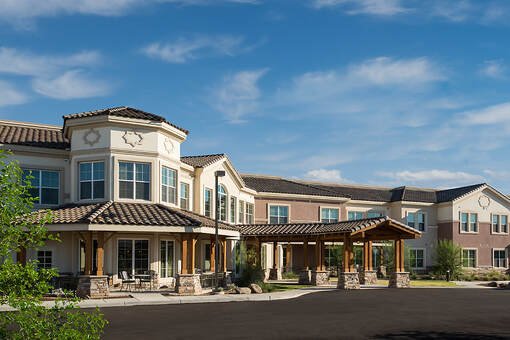Finding Long Term Care for a Loved One With Alzheimer's Disease
Are you considering a community setting for a loved one with Alzheimer’s disease or another form of dementia? Experts say the first and most important thing to learn about senior living communities offering memory care is whether they are up to the task of caring for your loved one. Do services align with their needs and is the home capable of advanced care down the road? A Place for Mom’s website says by asking the following questions, you should get the answers you need.
Before you begin your search, they suggest taking a few minutes to think about the needs of your loved one. Do they have a tendency to wander or exhibit aggressive behaviors? Do they require help with eating and drinking? Are they mobile or use a wheelchair or walker? Other information to relay is if they need help toileting, require 24/7 supervision, or care for medical conditions such as diabetes.
Once you establish that a memory care community is equipped to care for your loved one, now ask questions including how experienced is the staff; and do they have any special training. If so, is it on-going? Will your loved one have an individualized care plan? Also, what is the staff-ratio during the day and at night?
Inquire about safety protocols starting with secured doors, courtyards, and grounds as well as an emergency call system. Are hallways color-coded making it easier for residents to navigate about more independently? Is there a nurse on duty, and how extensive are medical services? Also, ask about the type of memory care activities and treatments available. After you have learned what you can, experts say trust your instincts.
MorningStar of Billings provides quality senior living including compassionate care for those in the early onset of dementia through to the most advanced stages. Our holistic approach to care is designed to affirm the value of the person and to find ways to celebrate the smallest successes. Beginning with dedicated caregivers to activities, programs and meals tailored to our residents’ special needs, we bring a deep understanding of the disease to our care. Please contact us for more information about our Reflections Neighborhood and to set up a tour.
MorningStar is guided by a culture rooted in our mission of honoring God, valuing seniors, and investing in our team, which allows us to deliver services with warmth, sincerity and depth of purpose. We have built a reputation for creating homes filled with an atmosphere of love and community. Contact us or visit our website to learn more about the finest independent living, assisted living and memory care in Billings, Montana.
Source: aplaceformom.com/planning-and-advice/articles/memory-care-facility-checklist



















